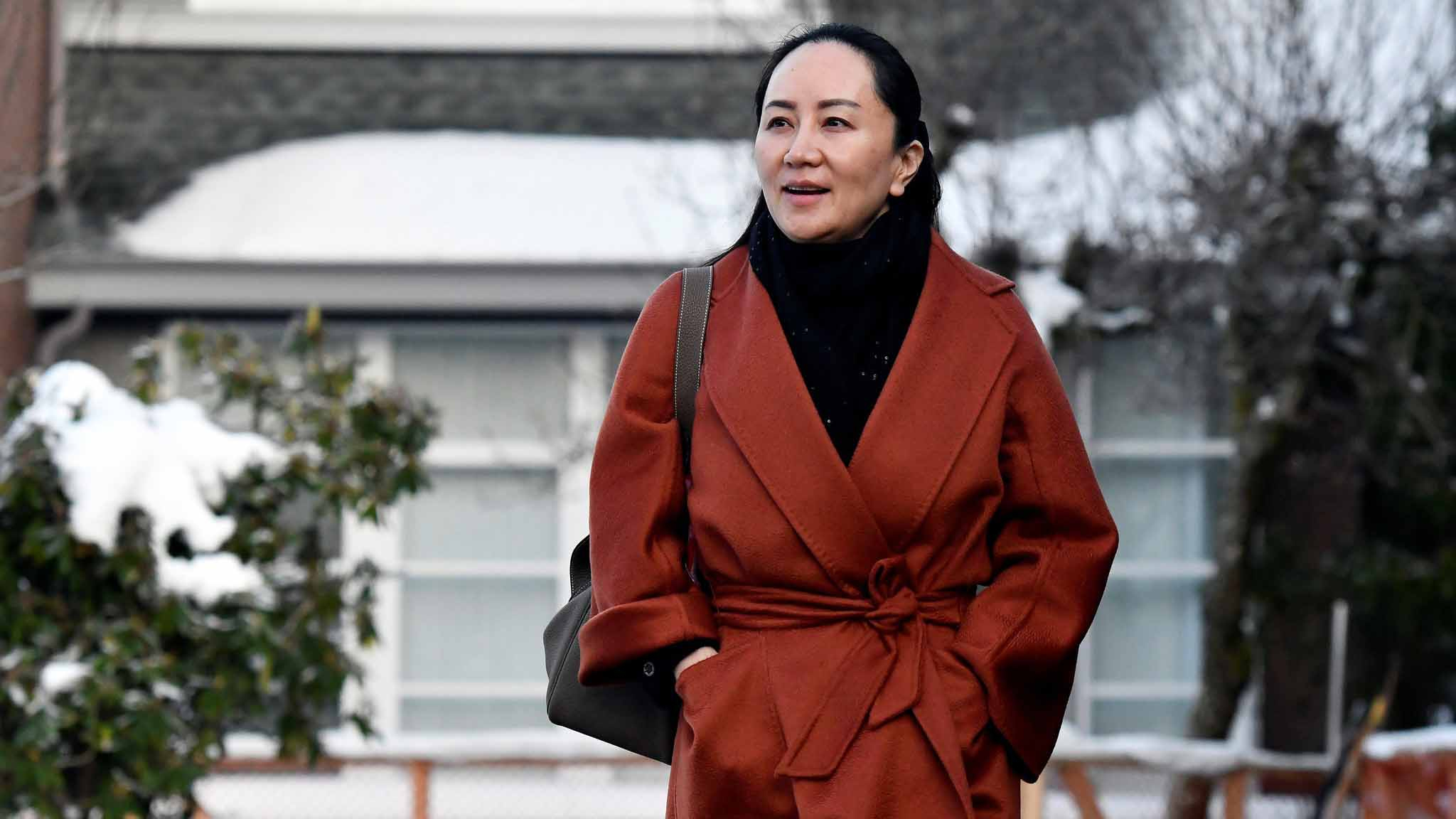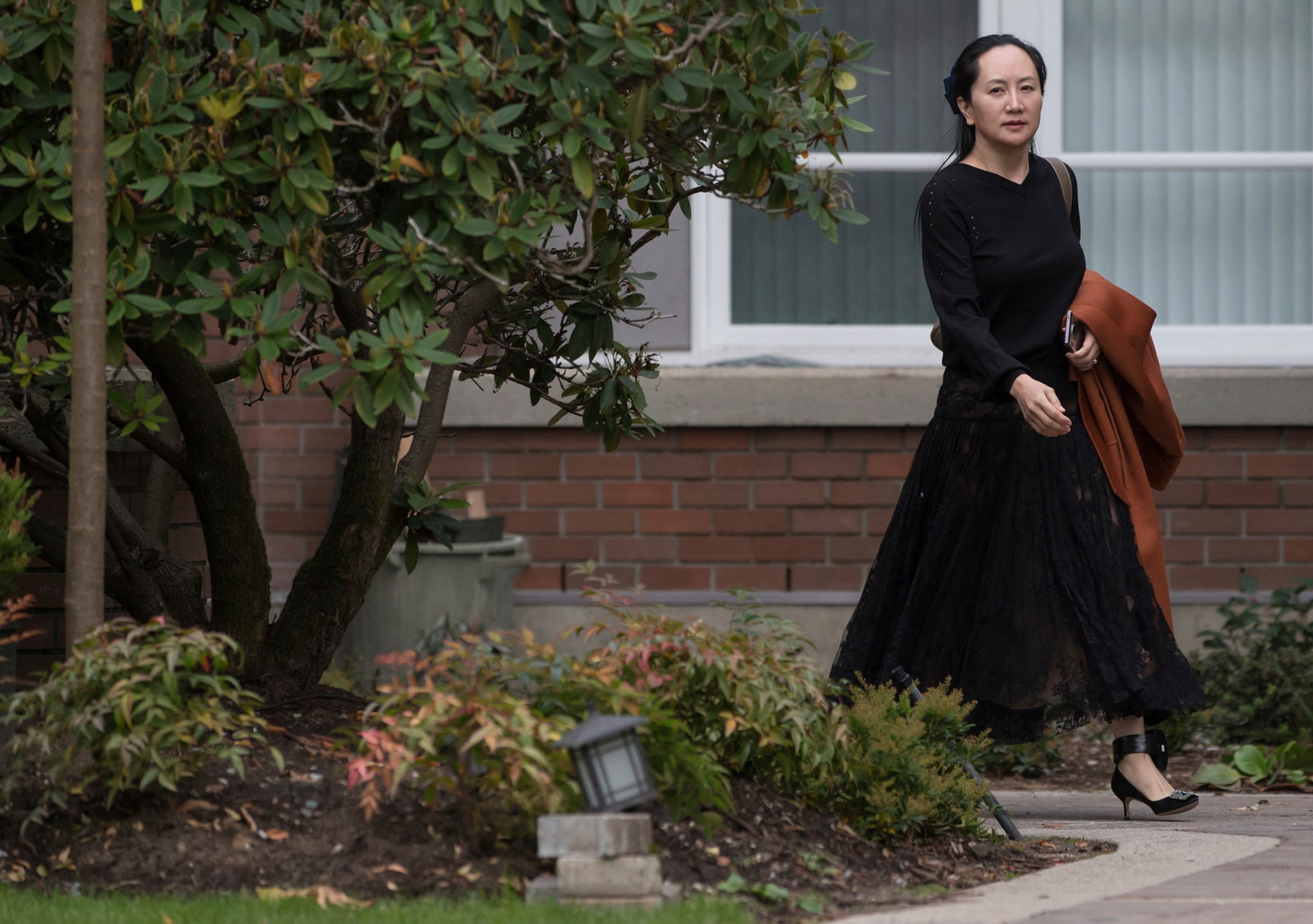03:19

A lawyer for Huawei's Chief Financial Officer Meng Wanzhou argued on Monday that "double criminality" was at the center of a trial to decide whether she can be extradited to the United States. Her case begins in a Vancouver courtroom and will run until January 24.
Meng reiterated that she is innocent in part because her alleged conduct was not illegal in Canada, an argument known legally as "double criminality." Meng's lawyer argued that Meng cannot be turned over to the U.S. because unlike the United States, Canada did not have sanctions against Iran at the time Canadian officials authorized commencing with the extradition, thus the standard of "double criminality" is not met.
However, the U.S. cast this matter as a case of fraud against a bank, accusing her of misleading HSBC Holdings Plc about Huawei Technologies Co Ltd's business of selling equipment to Iran, breaking U.S. sanctions against the country, which Meng's defense lawyer Richard Peck described as "an artifice."
"In reality, sanctions violation is the essence of the alleged misconduct... the United States has a global interest in enforcing its Iran sanctions. Sanctions drive this case," Peck added.
Huawei spokesperson Benjamin Howes had expressed confidence in Canada's judicial system, reiterating Huawei's position in a video that it is inappropriate for the company to give specific comments on the ongoing legal proceedings. But Huawei trusts Canada's judicial system, which would prove Meng's innocence, he said.

Meng Wanzhou, Huawei's chief financial officer, near her Vancouver home in October, 2019. /AP Photo
Meng Wanzhou, Huawei's chief financial officer, near her Vancouver home in October, 2019. /AP Photo
Meng could be released if the court finds this week that the "double criminality" standard does not apply. However, legal experts have said it could be months even years before a final decision is reached in the case, since Canada's justice system allows many decisions to be appealed.
Richard Kurland, a federal policy expert and lawyer not involved with the case, called Meng's "double criminality" argument around the absence of Canadian sanctions against Iran a sure bet.
"I think the defense has a slam dunk. There are no Iranian sanctions in Canada and anything (the prosecutors bring up) that's related to an Iranian sanction in Canada may well be dismissed," he said.
Meng's legal team is currently only scheduled to call evidence in the last week of April, and a second phase of the trial, focusing on abuse of process and whether Canadian officials followed the law when arresting Meng. Meng's legal team argued that her rights were violated when she was first detained.
Canadian border officials questioned her for three hours and seized her phones, asked for her passcodes and searched her luggage before arresting her. Her team of lawyers contend that this means that Canada and the United States conducted a "covert criminal investigation."
If the judge finds that Meng's rights were violated, the case could be dismissed.
(With input from Reuters)